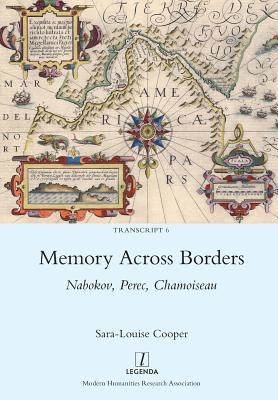
- We will send in 10–14 business days.
- Author: Sara-Louise Cooper
- Publisher: Legenda
- ISBN-10: 1781883513
- ISBN-13: 9781781883518
- Format: 17 x 24.4 x 0.9 cm, minkšti viršeliai
- Language: English
- SAVE -10% with code: EXTRA
Reviews
Description
Historical memory emerges through dialogue between one generation and the next. But what happens to this dialogue if the children speak a different language to their parents? Literary autobiography offers a space to explore the potential forms of memory in the aftermath of inter-generational linguistic change triggered by violent histories, such as the Holocaust, the Second World War, or imperialism. Through an exploration of the autobiographies of the Russian-American writer, Vladimir Nabokov, the French novelist and poet, Georges Perec, and the Caribbean author, Patrick Chamoiseau, Cooper offers a reflection on the role of migration and linguistic change in shaping twentieth and twenty-first century approaches to memory.
Sara-Louise Cooper is a Stipendiary Lecturer in French at Oriel College, Oxford.
EXTRA 10 % discount with code: EXTRA
The promotion ends in 23d.03:56:59
The discount code is valid when purchasing from 10 €. Discounts do not stack.
- Author: Sara-Louise Cooper
- Publisher: Legenda
- ISBN-10: 1781883513
- ISBN-13: 9781781883518
- Format: 17 x 24.4 x 0.9 cm, minkšti viršeliai
- Language: English English
Historical memory emerges through dialogue between one generation and the next. But what happens to this dialogue if the children speak a different language to their parents? Literary autobiography offers a space to explore the potential forms of memory in the aftermath of inter-generational linguistic change triggered by violent histories, such as the Holocaust, the Second World War, or imperialism. Through an exploration of the autobiographies of the Russian-American writer, Vladimir Nabokov, the French novelist and poet, Georges Perec, and the Caribbean author, Patrick Chamoiseau, Cooper offers a reflection on the role of migration and linguistic change in shaping twentieth and twenty-first century approaches to memory.
Sara-Louise Cooper is a Stipendiary Lecturer in French at Oriel College, Oxford.


Reviews